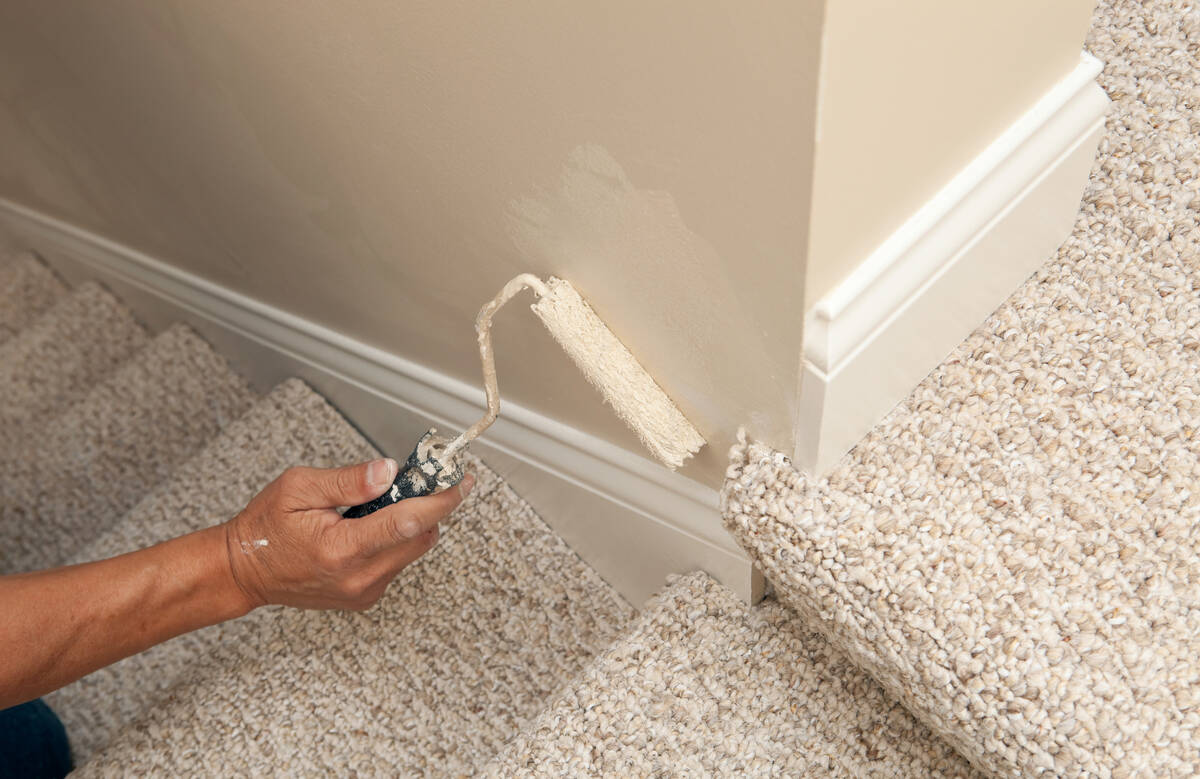Touching up a small area with paint will always be noticeable

Q: I had some holes in my drywall that I patched. I then sprayed on some texture and it looked pretty good. My problem is that I used some paint to touch up the patch and I can see exactly where the patch is. What can I do?
A: You can have the best patch in the world but if the paint doesn’t match, it’s going to stand out like a three-legged racehorse. You’ve got a couple of problems with touching up the paint: One is the color and the other is the sheen.
Many people have the original paint that was used on the walls and they expect it to match perfectly. Unfortunately, it does not. We run into this quite a bit. We can do a perfect drywall patch, but if the paint doesn’t match, the customer won’t be happy, even if he or she supplied the paint.
Maybe the number of years that the bucket sat in the garage changed its shade slightly, or maybe the sunlight shining on the wall bleached the old paint. Whatever the reason may be, you have a problem.
The simple solution is to paint the entire wall from corner to corner. Even if your paint is slightly off-color, when it is spread out over the entire wall, you won’t be able to tell. You will be left with two slightly different colors at the corner where the new paint meets the old, but the difference will be imperceptible.
The bigger problem comes when you just want to do a little touching up. This could be a drywall patch or even scuffs on the walls from the kids.
Touching up a small area will be noticeable from some vantage point. When the paint dries, you may look at it straight on and it may blend in perfectly, but when you stand to the side you can tell, or it may look flawless in the morning but be noticeable in the afternoon. With touch-up painting, you have to be prepared for not-so-perfect results.
If you don’t have any original paint, you can cut out a sample from an inconspicuous area. You can try a closet, but if the wall being touched up was beaten up by the sun, it may not match since the closet didn’t have the same exposure. You will need to take a sample to a paint center for a color match.
The sample should be at least the size of a quarter, but I would cut one about 2 inches square. Use a utility knife and cut a square from the wall by pressing just hard enough to get through the paper face of the drywall.
Pry up one of the corners and peel it off of the wall.
When you get a color match, you can apply a little drywall mud to the back of the sample, stick it back on, and then blend it back in.
Apply the paint sparingly. Use a paintbrush and dab the paint on instead of brushing it. You want to use the least amount of paint necessary to achieve the least noticeable touch-up. As you approach the edges of the area, almost wipe the brush dry and feather the paint out. Wipe the brush several times along the rim of the paint can and with small strokes in an outward direction only, feather the paint out.
You also can use a mini-roller to feather out the paint. Use the roller dry and roll it outward from the new paint to the old and it will help to blend it in. You will get good results from either method, but if you are picky, then paint the entire wall.
Mike Klimek is a licensed contractor and owner of Las Vegas Handyman. Questions may be sent by email to handymanoflasvegas@msn.com. Or, mail to 4710 W. Dewey Drive, No. 100, Las Vegas, NV 89118. His web address is www.handymanoflasvegas.com.